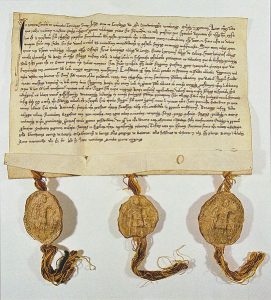Children from previous relationships, or The ‘Karel Gott Scenario’
 Many of you will know who Karel Gott is. He’s one of the great Czech singers and has had a long and distinguished career. A true Czech celebrity. That makes him a very special person, but in at least one respect, he’s not that unique. Like Mr Gott, many Czechs have ‘complicated’ family situations. In case you are not already familiar with his family history, Mr Gott has two older daughters from earlier relationships, (Dominika and Lucie) but is now married to Ivana. Together, they have two more younger daughters (Charlotte and Nelly).
Many of you will know who Karel Gott is. He’s one of the great Czech singers and has had a long and distinguished career. A true Czech celebrity. That makes him a very special person, but in at least one respect, he’s not that unique. Like Mr Gott, many Czechs have ‘complicated’ family situations. In case you are not already familiar with his family history, Mr Gott has two older daughters from earlier relationships, (Dominika and Lucie) but is now married to Ivana. Together, they have two more younger daughters (Charlotte and Nelly).
Under current Czech law, if Karel does not have a will, when he dies, his estate will be divided equally between Mrs Gott and all four daughters. This seems entirely fair and reasonable. The new Civil Code does give him a greater opportunity to adjust these shares, but it is still impossible for him to ‘cut anyone out’ of his will entirely.
That creates two problems.
The first problem arises when you consider the position this puts his wife in. She will already be emotionally stressed by the death of her husband. The last thing she needs at this time is additional financial stress. The two adult daughters will now own a share of everything – and that probably means that she’ll have to, somehow, come up with the money to pay them out.
The second thing to consider is that Mrs Gott is still young. There is presumably every chance that she would remarry, and perhaps even have more children with a future new husband. So that means that in the future, when she passes away, her new husband, and also the children of the second marriage could be the ultimate beneficiaries of her part of Mr Gott’s wealth. Dominika and Lucie would get nothing at this point.
Is that what Mr Gott would like to happen with his money after his death? I have no idea, but I suspect not. In this situation the old law was not flexible enough to meet Mr Gott’s needs and he potentially ended up with an outcome that he did not want.
This is where Svěřenské fondy a trusty (Czech Trusts) come in. Since January, they have offered Mr Gott a solution to these problems.
He does two things.: First, he establishes what we call a ‘pre-testamentary’ trust. Into this Trust he puts his share of the non-liquid family assets. This could include his family home, his holiday home, and in his case, at least some of the royalty rights to his songs. By doing this, he removes these assets from his estate when he dies, which means that forced inheritance does not apply to them. Then, in his will he adds a provision that further money should go to the trust. He cannot of course completely ‘cut anyone out’ of the will, but if this is structured correctly the situation can be made manageable and fair to all concerned.
The Trust will make sure Mrs Gott has everything she needs to live in comfort during her lifetime, but then on her death passes the money, not to her new husband, but instead, equally, to the four daughters (or otherwise, as Mr Gott wants). A secondary benefit is that once assets are placed in the Trust they are protected from claims,- whether from executors, legal cases, or matrimonial property claims
In reality, I expect that Mr Gott has probably already implemented a plan that deals with this situation – but since January these kind of solutions have been be reserved not only to millionaires, but are now also within the reach of ordinary people – because they can be implemented at a minimal cost.

 What’s not so good news is that due to inexperience, many (perhaps even most?) of the Czech Trusts established so far are fatally flawed.
What’s not so good news is that due to inexperience, many (perhaps even most?) of the Czech Trusts established so far are fatally flawed.